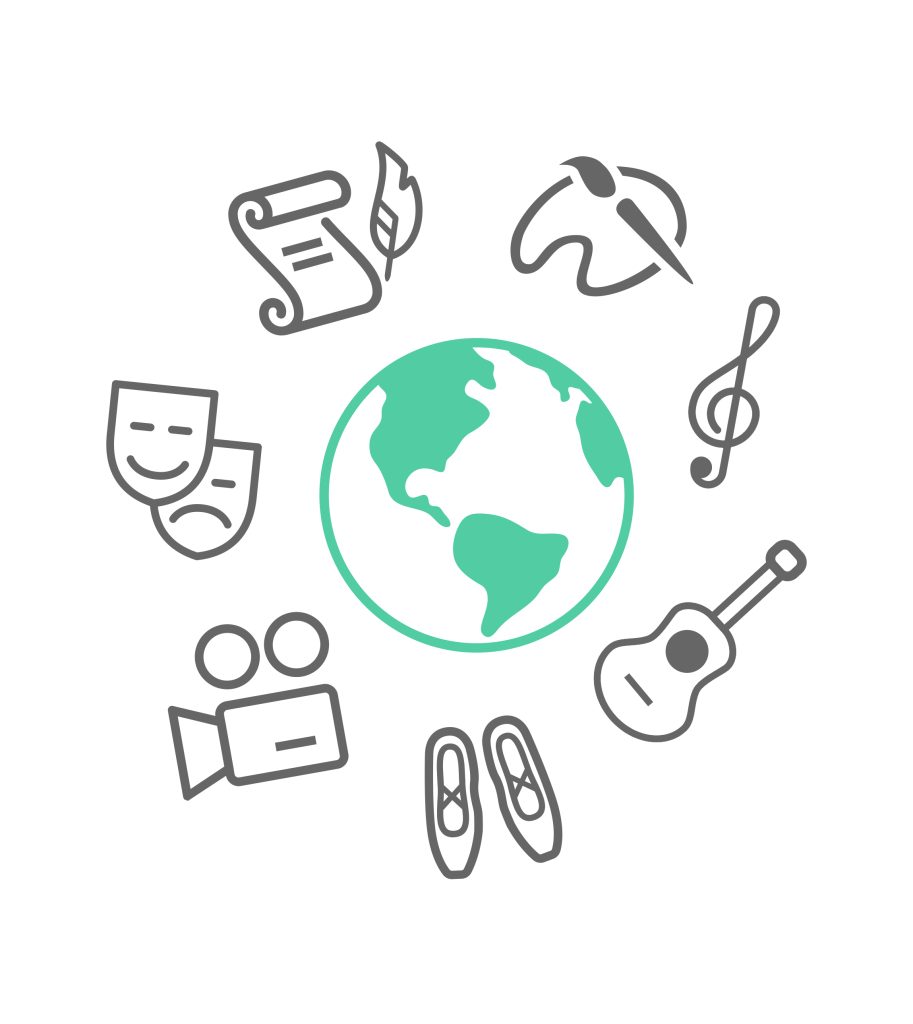The creative economy has proven to be a dynamic and resilient economic sector, even during economic crises. It can serve as a source of sustainable jobs for young people, as it is both labor-intensive and youth-friendly – relying on young talent and young consumers, embracing diverse backgrounds and educational levels, and offering flexible employment conditions that young people can easily meet. It contributes to local economic development and social cohesion; supports local communities, and can generate innovative solutions to social problems such as urban decay, youth marginalization, crime, healthcare, and pollution.
Project SMART focuses on developing the EU, Eastern, and Southern Africa, believing that the growth of creative economies in these regions can contribute to job creation and the fight against youth poverty and exclusion. However, harnessing the potential of the cultural and creative industries requires providing appropriate high-quality training in arts management, arts marketing, and creative entrepreneurship for young people outside formal education systems.
The overall goal of the project was to promote the joint development, dissemination, and wide use of innovative Open Educational Resources (OER) and training methods in the fields of management and entrepreneurship in the cultural and creative sector, to build the capacity of youth workers and youth organizations to promote youth inclusion, youth employment, and youth-led initiatives for social and community impact.
The project unites the common ideas and ambitions of six diverse organizations to carry out a set of activities related to the development of educational resources, manuals, and web-based resource repositories for youth creativity, as well as a series of training activities based on experiential learning methods.



Project duration:
Funded by:
Erasmus+ Programme of the European Union
Key concepts:
- cultural and creative industries and leveraging their potential to address youth unemployment and social exclusion
- training in management and entrepreneurship within the cultural and creative industries
- enhancing capacity for youth work
Target groups and beneficiaries:
- youth leaders, youth workers, and organizations from the EU, Northern, and Southern Africa
- young people
- the non-formal education sector
Project outputs and products:
- training and educational resources focused on developing management and entrepreneurship skills in the creative industries
- training activities based on the "learning by doing" method
- web-based repositories of resources featuring youth creativity and culture
- мentorship schemes for aspiring artists and ambitious art managers and administrators
Partners:
- International Management Institute, Bulgaria
- Budapest Metropolitan University, Hungary
- National Youth Council, Namibia
- TEARS Group, Kenya
- Ngamiland Council of Non-Governmental Organizations, Kenya
- Word and Sound Live Literature Company, South Africa

